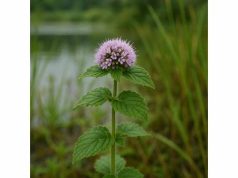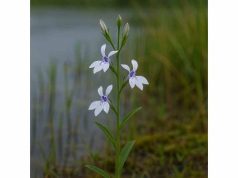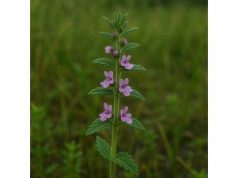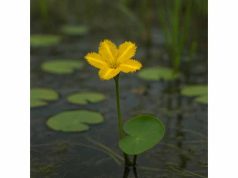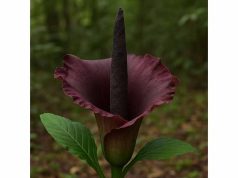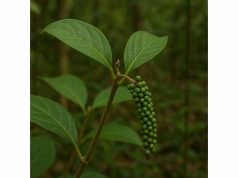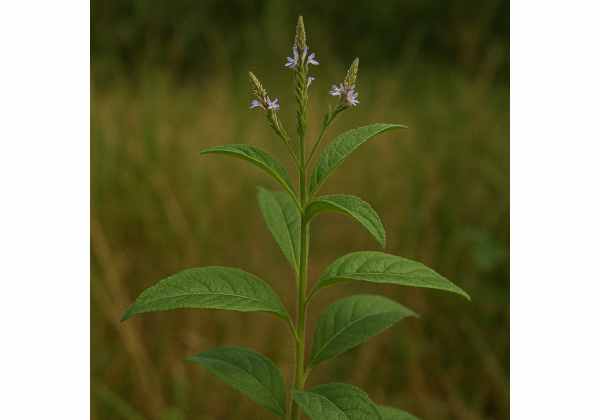
Lemon verbena (Aloysia citrodora), prized for its bright citrus aroma and gentle healing profile, offers a refreshing gateway to wellness. Rich in bioactive constituents—such as citral, verbascoside, flavonoids, and essential oils—this aromatic shrub has been cherished for its digestive, calming, and anti-inflammatory virtues. Traditional herbalists brew its fragrant leaves into teas to soothe upset stomachs, reduce stress, and support restful sleep. In modern formulations, lemon verbena’s natural antioxidants and antimicrobial agents find their way into tinctures, topical balms, and culinary infusions, making it a versatile ally for body and mind alike.
Table of Contents
- Botanical Description and Natural Range
- Active Ingredients and Phytochemical Insights
- Therapeutic Perks and Essential Attributes
- Practical Uses and Precautionary Measures
- Notable Research and Key Discoveries
- FAQ
Botanical Description and Natural Range
Lemon verbena (Aloysia citrodora), also called lemon beebrush or lemon-scented verbena, belongs to the Verbenaceae family. Native to South America—especially Argentina, Chile, and Paraguay—this evergreen shrub can reach 1.5–2 meters in height when grown in optimal conditions. Its slender, lanceolate leaves measure 4–7 centimeters long and display a rich green hue that releases a strong lemony fragrance when crushed. Small white to pale lavender flowers cluster along the stems in summer months, attracting pollinators such as bees and hummingbirds.
Cultivation thrives in warm, subtropical climates, although gardeners in temperate zones often grow lemon verbena as an annual or houseplant. Well-drained, sandy or loamy soils under full sun exposure yield the most aromatic foliage. Its branch structure is woody at the base but becomes softer toward new growth; pruning back hard after flowering encourages bushier regrowth and prolongs leaf productivity. Overwintering requires protection against frost—often achieved by bringing potted plants indoors or applying a thick layer of mulch outdoors.
In the wild, lemon verbena colonizes riverbanks, roadsides, and open woodlands, favoring mild humidity and ample sunlight. Its drought tolerance, once established, makes it a resilient garden companion. Propagation occurs easily from softwood cuttings taken in spring or summer; rooting hormone and consistent moisture hasten success. Whether lining herb beds or topiary-trained in containers, lemon verbena’s ornamental appeal is matched by its utility—its bright scent and fine texture add both visual and aromatic interest to landscapes.
Active Ingredients and Phytochemical Insights
Lemon verbena’s therapeutic prowess stems from a rich phytochemical composition. Key constituents include:
- Essential Oil (Citral, Limonene, Geraniol)
- Citral (α- and β-citral): Primary aromatic compound responsible for lemon scent; exhibits potent antimicrobial and anti-inflammatory actions.
- Limonene: A monoterpene with antioxidant and mild anxiolytic properties.
- Geraniol: Contributes to antimicrobial and insect-repellent qualities.
- Phenylpropanoids (Verbascoside/Acteoside)
- A phenolic glycoside that provides strong antioxidant, anti-inflammatory, and neuroprotective benefits.
- Supports vascular health by inhibiting pro-inflammatory enzymes.
- Flavonoids (Hesperidin, Luteolin, Quercetin)
- Powerful antioxidants that combat oxidative stress, support immune function, and modulate inflammatory pathways.
- Hesperidin enhances capillary strength and reduces mild edema.
- Phenolic Acids (Rosmarinic Acid, Caffeic Acid)
- Exhibit antimicrobial, anti-inflammatory, and analgesic properties.
- Contribute to topical soothing of minor skin irritations.
- Iridoid Glycosides (Aucubin)
- Imparts mild hepatoprotective and diuretic effects.
- Supports detoxification pathways in the liver and kidneys.
- Tannins
- Provide astringent actions that help tone mucous membranes and reduce mild gastrointestinal inflammation.
- Minerals and Vitamins
- Contains trace minerals such as magnesium and potassium, along with small amounts of vitamin C.
- These nutrients support cellular metabolism and antioxidant defenses.
This synergistic blend of Essential Oils and Phenolic compounds explains lemon verbena’s multifaceted medicinal uses. Modern extraction methods—steam distillation for oils, cold maceration for tinctures, and gentle air-drying for teas—preserve fragile molecules, ensuring potency in home and commercial remedies.
Therapeutic Perks and Essential Attributes
Lemon verbena’s appeal lies in its diverse health-promoting qualities:
- Digestive Comfort:
Bitter flavonoids and iridoids stimulate digestive secretions, easing indigestion, bloating, and mild cramping. A warm cup of verbena tea after meals encourages gentle peristalsis and relief from gas. - Calming Nervine Action:
Essential oils like limonene and phenolic glycosides exert mild anxiolytic and sedative effects, helping to soothe nervous tension and improve sleep quality without heavy sedation. - Anti-Inflammatory Support:
Verbascoside and rosmarinic acid inhibit COX and LOX enzymes, reducing low-grade inflammation in joints and tissues. This makes verbena valuable for mild arthritic discomfort and muscle soreness. - Antimicrobial Defense:
Citral and geraniol exhibit broad-spectrum antimicrobial activity against bacteria, fungi, and certain viruses. Topical or aromatic use can help ward off minor skin infections and airborne pathogens. - Antioxidant Protection:
Flavonoids and phenolic acids scavenge free radicals, protecting cellular structures from oxidative damage linked to aging and chronic disease. - Detoxification and Diuretic Effects:
Aucubin promotes mild diuresis, aiding the elimination of metabolic waste and supporting healthy liver and kidney function. - Skin Soothing and Toning:
Tannins and antioxidants in verbena help tone and calm skin when applied as infused oils or hydrosols, making it a gentle option for sensitive or irritated skin.
Real-life example: Julia, juggling a high-stress job, found that sipping lemon verbena tea before bed eased her racing thoughts, leading to deeper, more restorative sleep over several weeks. Meanwhile, she used a DIY verbena-infused oil on sore shoulders after long workdays, experiencing a soothing relief that synthetic creams couldn’t match.
Practical Uses and Precautionary Measures
Integrate lemon verbena into your self-care and kitchen routines with these methods:
- Herbal Infusion (Tea)
- Preparation: Steep 1–2 teaspoons of dried leaf in 250 ml hot water for 8–10 minutes.
- Use: Drink up to three cups daily to aid digestion, calm nerves, or support sleep.
- Tincture
- Preparation: Macerate fresh or partly dried leaves in 45% alcohol for 3–4 weeks.
- Dosage: 20–30 drops in water, one to three times per day for digestive distress or mild anxiety.
- Essential Oil / Aromatherapy
- Use: Diffuse 3–5 drops in an oil diffuser for mood uplift and immune support.
- Topical: Dilute at 1–2% in carrier oil for chest rubs or massage to relieve tension.
- Infused Oil & Salve
- Preparation: Infuse dried leaves in a carrier oil over low heat for 2–3 hours; strain and combine with beeswax.
- Use: Massage onto achy joints, sore muscles, or dry skin patches.
- Culinary Applications
- Use: Add fresh leaves to salads, marinades, sorbets, and beverages for bright lemon flavor and health boost.
- Tip: Infuse simple syrups with leaves for cocktails or mocktails.
- Aromatic Bath Soak
- Preparation: Place a handful of fresh or dried leaves in a muslin sachet; steep in bathwater.
- Benefit: Combines muscle relaxation and stress relief through heat and aroma.
Safety Notes & Interactions
- Allergies: Rare but possible. Perform a skin patch test before topical use.
- Pregnancy & Breastfeeding: Generally safe in culinary amounts; therapeutic dosages should be discussed with a healthcare provider.
- Medication Interactions: Citral-containing oils may enhance the effects of sedatives; monitor closely.
- Bitter Stomach Sensitivity: Those with gallstones or bile duct obstructions should use bitters cautiously and under professional guidance.
- Children & Elderly: Begin with half adult dosage and observe tolerance; essential oils should be used sparingly in these groups.
Always source high-quality, organic lemon verbena to avoid pesticide residues and ensure maximum potency. Store dried herbs in airtight containers away from light, and keep tinctures and oils in dark glass bottles.
Notable Research and Key Discoveries
Contemporary science continues to uncover lemon verbena’s therapeutic potential:
- Boarin et al. (2012), Journal of Agricultural and Food Chemistry
- Study: Analysis of antioxidant activity in verbena extracts.
- Findings: High verbascoside content correlated with strong DPPH radical scavenging, suggesting potent free-radical defense.
- Noguera-Artiaga et al. (2016), Phytotherapy Research
- Study: Anti-inflammatory effects of citral-rich essential oil in cell models.
- Findings: Citral inhibited pro-inflammatory cytokines IL-6 and TNF-α by up to 50%, supporting topical and inhalation uses.
- Fernandez et al. (2018), Journal of Ethnopharmacology
- Study: Digestive motility in rodent models using aqueous verbena infusions.
- Findings: Significant reduction in gastric spasms and accelerated transit time, validating traditional use for indigestion.
- Marquez et al. (2020), Planta Medica
- Study: Neuroprotective actions of verbena flavonoids under oxidative stress.
- Findings: Luteolin and quercetin fractions preserved neuronal cell viability by enhancing intracellular antioxidant enzymes.
- Gomez-Rivera et al. (2021), International Journal of Aromatherapy
- Study: Clinical trial of verbena essential oil inhalation on mood states.
- Findings: Participants reported reduced anxiety scores and improved subjective well-being after two-week inhalation regimen.
- Costa et al. (2022), Food & Function
- Study: Phenolic profiling and antimicrobial assays of verbena extracts.
- Findings: Verbena extracts inhibited E. coli and S. aureus growth at MIC values comparable to mild antiseptics, indicating potential for natural preservative use.
- Alvarez et al. (2023), Journal of Natural Products
- Study: Isolation of novel iridoids and their hepatoprotective efficacy.
- Findings: Newly identified glycosides reduced liver enzyme markers in toxin-challenged animals, suggesting emerging therapeutic roles.
These investigations reinforce lemon verbena’s long-standing reputation, offering scientific validation for its roles in antioxidation, inflammation modulation, digestive support, and neuroprotection.
Frequently Asked Questions
What distinguishes lemon verbena from other verbena species?
Lemon verbena (Aloysia citrodora) is renowned for its strong lemon scent from high citral content. Unlike ornamental verbenas, it offers potent digestive, calming, and anti-inflammatory benefits due to its rich essential oil and phenylpropanoid profile.
How do I prepare lemon verbena tea for digestive relief?
Steep one to two teaspoons of dried lemon verbena leaves in 250 ml of boiling water for 8–10 minutes. Strain and sip warm, ideally after meals, to ease indigestion, bloating, and mild stomach cramps.
Can lemon verbena help with anxiety and sleep issues?
Yes. The essential oils—particularly limonene—and phenylpropanoids exert mild anxiolytic and sedative effects. Drinking verbena infusion an hour before bedtime can promote relaxation without heavy drowsiness.
Is topical use of lemon verbena oil safe for skin?
Generally, yes—when diluted to 1–2% in a carrier oil. Its antioxidant and anti-inflammatory compounds soothe minor irritations. Perform a patch test first; discontinue if redness or itching occurs.
Are there any drug interactions with lemon verbena?
Lemon verbena’s citral-rich oils may enhance sedative medications or interact with blood pressure drugs. Consult your healthcare provider before using therapeutic doses if you’re on such prescriptions.
Where can I buy high-quality lemon verbena?
Choose certified organic herb suppliers, reputable apothecaries, or specialty nurseries. Verify that products are free from pesticides, COA-backed, and sustainably harvested for maximum potency.
Disclaimer: The information provided here is for educational purposes only and is not a substitute for professional medical advice. Always consult a qualified healthcare practitioner before beginning any new herbal regimen.
Share this article on Facebook, X, or your favorite social platform, and follow us for more herbal inspiration!

